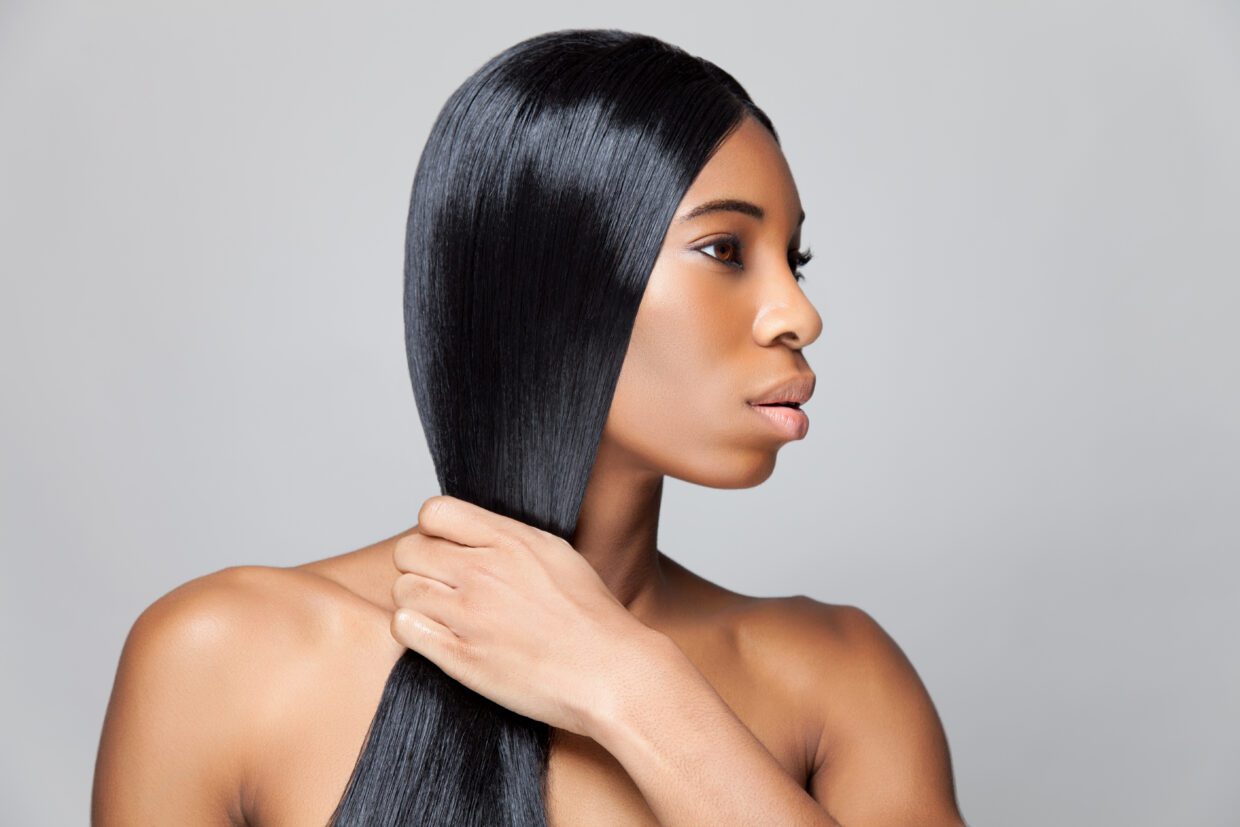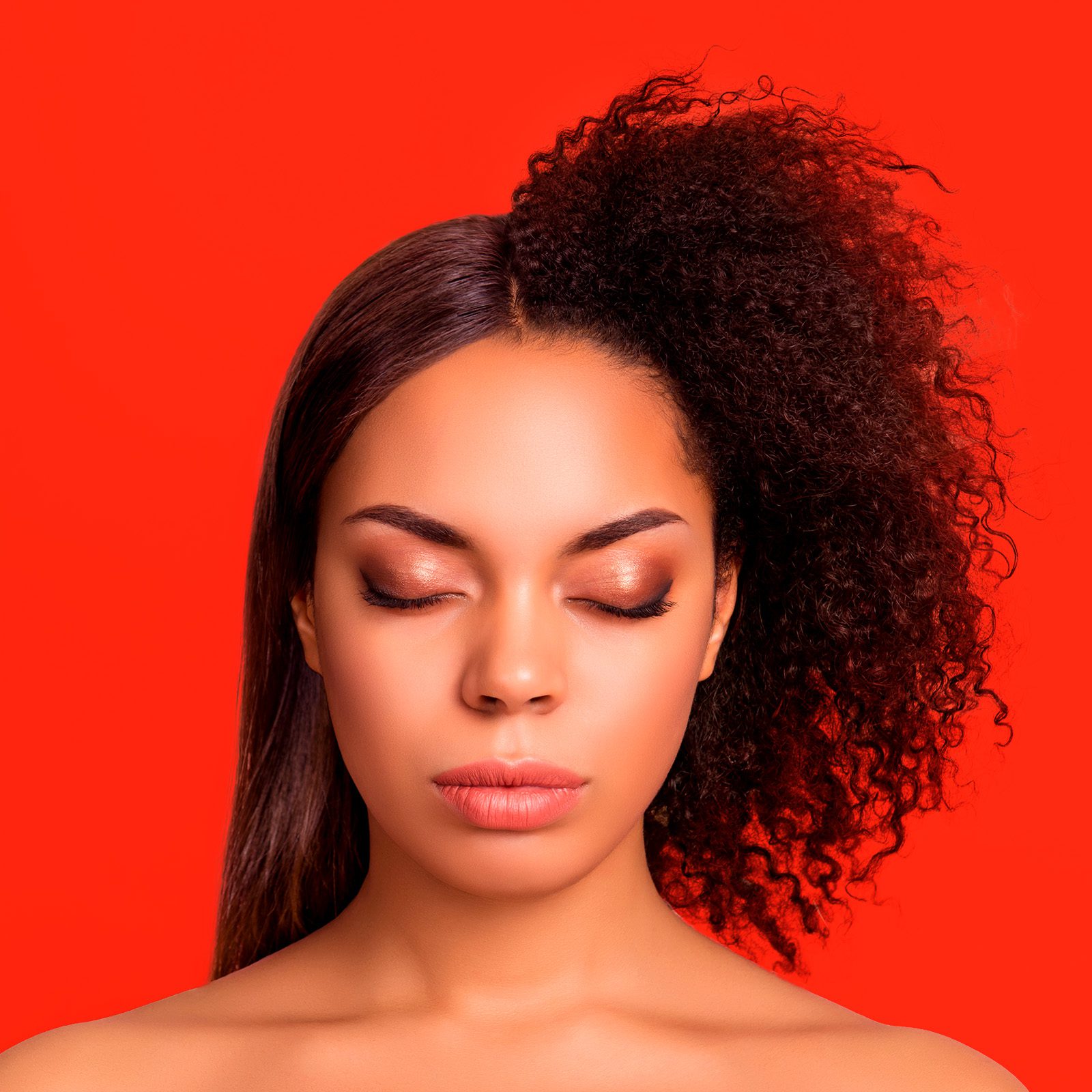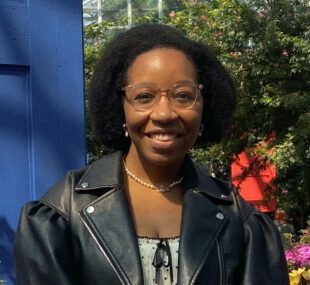Much has already been said about the link between chemical hair straighteners and the development of uterine fibroids, particularly for Black women. Well, now it appears that frequent use of chemical hair straightening products could raise the risk of uterine cancer, according to a new study by the National Institutes of Health. Researchers noted that Black women have a higher risk due to higher usage of these products.
The alarming results came after a group of researchers within the NIH’s National Institute of Environmental Health and Sciences (NIEHS) studied the hair care habits of 33,947 women, ages 35 to 74, across the U.S for almost 11 years. During this time, 378 uterine cancer cases were diagnosed. The researchers found that women who used straightening products four or more times a year were more than twice as likely to develop uterine cancer compared to those who did not. They did not find any associations between the use of other hair products such as dyes, bleach, highlights, or perms and uterine cancer.
“We estimated that 1.64 percent of women who never used hair straighteners would go on to develop uterine cancer by the age of 70, but for frequent users, that risk goes up to 4.05 percent,” said Alexander White, the head of the NIEHS Environmental and Cancer Epidemiology group and the study leader, in a statement. “This doubling rate is concerning. However, it is important to put this information into context —uterine cancer is a relatively rare type of cancer.

While White is correct that uterine cancer is a rare type of cancer, the reality is that Black women are twice as likely to die from it than women from other racial groups, according to the National Cancer Institute. As it stands, uterine cancer is the most common cancer of the female reproductive system with an estimated 65,950 cases in 2022. Studies show that rates are rising, especially among Black women.
Previous studies have shown that chemical hair straighteners can increase the risk of hormone-related cancers in women. Researchers believe that several chemical founds in these straighteners (such as parabens, phthalates, and fragrances) could be contributing to the increased risk of uterine cancer that is being observed and note that they may be entering the bloodstream via the scalp before than traveling to the uterus.
“To our knowledge this is the first epidemiologic study that examined the relationship between straightener use and uterine cancer,” said White. “More research is needed to confirm these findings in different populations, to determine if hair products contribute to health disparities in uterine cancer, and to identify the specific chemicals that may be increasing the risk of cancers in women.”
However, Che-Jung Chang, an author on the study and a research fellow in the NIEHS Epidemiology Branch, notes that, “Because Black women use hair straightening or relaxer products more frequently and tend to initiate the use at earlier ages than other races and ethnicities, these findings may be even more relevant for them.”

Around 60 percent of the women in the NIH study who reported using chemical straightening products were self-identified Black women. While this data certainly supports the finding that Black women have a higher usage of these products, it’s necessary and important to understand that Black women are more likely to use straightening chemicals due to racism and societal standards that value Eurocentric beauty ideals. For decades, Black women have been pressured to straighten their naturally textured hair to conform to societal norms and prevent hair discrimination at work or school. But, as we have now all learned, the alternative of using relaxers to change their hair texture may actually end up killing Black women.
Currently, there are no federal laws addressing hair discrimination, but the good news that there is currently a push for the CROWN Act (which stands for Creating a Respectful and Open World for Natural Hair) to be made law in all 50 states. I’m curious to see how these findings further impact the passing of this legislation in the Senate.
To review the study in full, be sure to click here.


